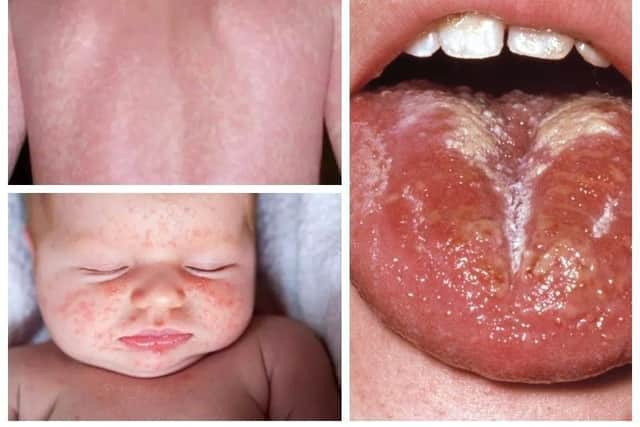Parents urged to be vigilant after confirmed scarlet fever cases in schools


This morning, Gladstone Road schools said it had confirmed its first case and Friarage said it had "confirmed cases" in the school.
A spokesman for the school said: "We sent out a text to parents today saying there had been suspected cases but we now have our confirmed case.
Advertisement
Hide AdAdvertisement
Hide Ad"We tell our parents to get their children checked out if they have any of the symptoms, not just all of them."


Dr Simon Padfield, Consultant in Communicable Disease Control with PHE in North Yorkshire and the Humber said: “Scarlet fever is an infectious disease which is spread through close contact with individuals carrying the organism that causes it or indirect contact with objects and surfaces contaminated with the bacterium.
“Parents can play a key role in recognising when their child needs to be seen by their GP.
"Early signs to look out for are a sore throat, headache and fever. The characteristic pinkish-red sandpapery rash appears within a day or two, typically on the chest and stomach first but then spreading to other parts of the body.
Advertisement
Hide AdAdvertisement
Hide Ad“If you think you or someone in your household may have scarlet fever, you should seek advice from your GP as soon as possible, as prompt antibiotic treatment is needed. Symptoms usually clear up within a week and the majority of cases get better without complications, as long as the recommended course of antibiotics is completed.”


Scarlet fever, a Victorian-era disease, has made a comeback in recent years, with more than a dozen cases reported in Scarborough in 2016.
The reasons behind the dramatic increase are unclear but may reflect the long-term natural cycles in disease incidence seen in many types of infection. Results of specialist testing undertaken by PHE show that the rise is not due to the emergence of a new strain of the infection and investigations into alternative reasons are ongoing.
Figures show that 17,586 cases were reported in England in 2015 which is the highest total since 1967, compared to just 1,678 in 2005.
Advertisement
Hide AdAdvertisement
Hide AdDr Padfield added: “Scarlet fever is highly infectious so children or adults diagnosed with scarlet fever are advised to stay off school or work until at least 24 hours after starting antibiotic treatment to avoid passing on the infection.”
Scarlet fever was once a very dangerous infection but has now become much less serious. Antibiotic treatment should be given to minimise the risk of complications.